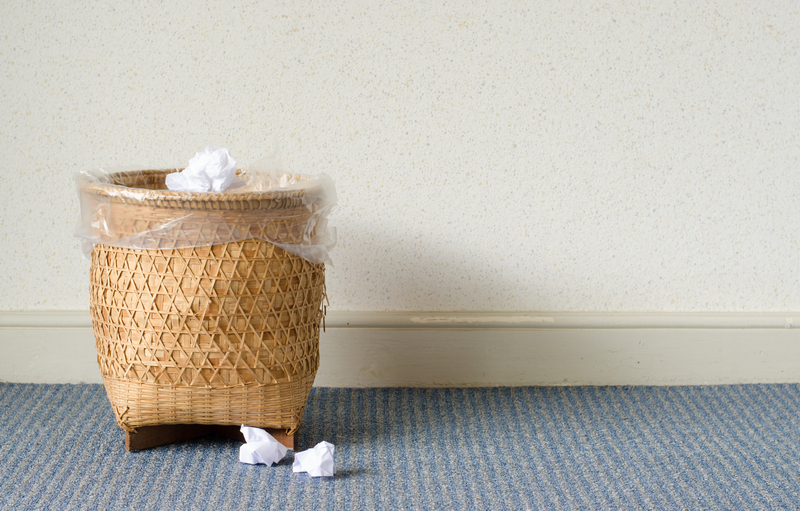The Value of Correct Waste Disposal
Posted on 31/03/2025
Proper waste disposal is not just a matter of convenience; it is an essential aspect of maintaining a healthy, thriving environment. As our global population grows, waste management becomes increasingly critical. Effective waste disposal practices can significantly reduce pollution, conserve resources, and enhance public health. In this article, we will delve into the multifaceted value of correct waste disposal and offer some practical tips on how to implement these practices in everyday life.
Environmental Impact
Improper waste disposal leads to a myriad of environmental issues, including land, water, and air pollution. Landfills that are not adequately managed can leak toxic substances into surrounding soil and groundwater, harming local ecosystems and wildlife. Moreover, incinerating waste releases harmful gases like carbon dioxide and methane, contributing to climate change. Correct waste disposal methods, such as recycling and composting, help mitigate these adverse environmental effects.

Conservation of Resources
When waste is correctly sorted and processed, materials that would otherwise end up in landfills can be recycled or repurposed. Recycling conserves natural resources like timber, water, and minerals by reducing the need to harvest new raw materials. This practice not only conserves finite resources but also saves energy and reduces greenhouse gas emissions associated with the production and transportation of new materials.
Economic Benefits
Effective waste management can also offer economic advantages. Recycling programs create jobs in collection, processing, and repurposing industries. Moreover, businesses that adopt sustainable waste disposal practices can reduce costs associated with waste management and create new revenue streams through the sale of recyclable materials. These economic incentives demonstrate that proper waste disposal is not just an environmental concern but also a sound business practice.
Public Health
Improper waste disposal can lead to serious public health risks. Accumulated waste attracts pests, such as rodents and insects, which can spread diseases. Hazardous waste, when not disposed of correctly, can contaminate air and water supplies, leading to various health issues among the population. Proper waste disposal methods ensure that both hazardous and non-hazardous waste is managed in a way that minimizes these health risks.
Legal and Ethical Considerations
Many countries have stringent regulations regarding waste disposal, and failing to adhere to these laws can result in severe penalties, including fines and legal action. Adopting proper waste disposal methods ensures compliance with these regulations and demonstrates a commitment to ethical and responsible environmental stewardship. Businesses and individuals alike have a moral obligation to minimize their environmental footprint through correct waste management practices.
Tips for Practicing Correct Waste Disposal
1. Segregate Waste Properly: Use separate bins for recyclables, compostables, and non-recyclables. Label these bins clearly to make the process easier for everyone involved.
2. Reduce and Reuse: Aim to reduce the amount of waste you produce by reusing items whenever possible. For instance, opt for reusable shopping bags, bottles, and containers.
3. Recycling: Familiarize yourself with local recycling guidelines to ensure that you are disposing of recyclables correctly. This may vary from one area to another.
4. Composting: Start a compost pile for organic waste like food scraps and yard waste. Composting enriches soil, reduces the need for chemical fertilizers, and diverts waste from landfills.
5. Hazardous Waste: Dispose of hazardous materials, such as batteries, paints, and electronic waste, at designated collection points. Never throw these items in regular trash bins.
Pros and Cons of Correct Waste Disposal
Pros:
- Reduces environmental pollution
- Conserves natural resources
- Provides economic benefits through job creation and cost-saving
- Enhances public health
- Ensures compliance with legal regulations
Cons:
- Can be time-consuming to sort and process waste correctly
- Recycling facilities and composting may require initial investment
- Not all materials are recyclable, posing challenges in waste management

Takeaways
- Correct waste disposal is crucial for environmental sustainability and public health.
- Simple practices like segregating waste, recycling, and composting can significantly impact.
- Businesses benefit economically from implementing sustainable waste disposal methods.
- Adhering to waste disposal regulations is both a legal requirement and an ethical responsibility.
Conclusion
The value of correct waste disposal extends far beyond simply keeping our surroundings clean. It is an integral part of preserving our environment, conserving resources, and safeguarding public health. While it may require some effort and investment, the long-term benefits far outweigh these initial sacrifices. By adopting proper waste management practices, we can contribute to a sustainable future for generations to come.
Latest Posts
Resource Efficiency with Polystyrene Recycling
Essential Hacks for a Tidy Home




